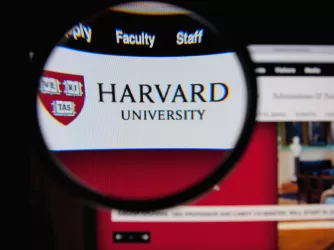Table of Contents
‘Disinvitation Season’ In Full Swing; IMF Head Next Victim

Condoleezza Rice. Duncan Lance Black. Ayaan Hirsi Ali. Charles Murray. All of them have been disinvited from speaking at colleges this spring (or put under such pressure that they withdrew from speaking), for, respectively, the political, personal, religious, and scientific controversies surrounding their lives and work. Now those keeping score can add to that list Christine Lagarde, the formerly scheduled commencement speaker at Smith College and current managing director of the International Monetary Fund.
The women's college in Northampton, Mass., announced Christine Lagarde's withdrawal Monday. According to the college, she said it was clear that many did not want her on campus and that she did not want to distract from a joyous occasion.
An online petition with hundreds of signatures said Lagarde represents a corrupt system that fuels the oppression and abuse of women worldwide.
I have said it before, and I will say it again; there is no way that a person can rise to the level at which they would be asked to be the commencement speaker at a college without accomplishing something that is going to be controversial to someone. Everyone—everyone!—has his or her detractors. (Have a look at what the late author and intellectual Christopher Hitchens had to say about Mother Teresa.)
Those agitating for the disinvitation of graduation speakers need to understand that while they may believe they are striking a blow for their cause (in Lagarde’s case, the petitioners were opposing the “strengthening of imperialist and patriarchal systems that oppress and abuse women worldwide”), the message they are really sending is the following: Who we want to hear from is determined purely by politics. It’s hard to think of a more destructive last message for campuses to send to their graduating students. As Smith College President Kathleen McCartney wrote in her statement on the issue:
An invitation to speak at a commencement is not an endorsement of all views or policies of an individual or the institution she or he leads. Such a test would preclude virtually anyone in public office or position of influence. Moreover, such a test would seem anathema to our core values of free thought and diversity of opinion.
Recent Articles
FIRE’s award-winning Newsdesk covers the free speech news you need to stay informed.

‘I hate freedom of opinion’ meme leads to sentencing in German court

Revoking Harvard’s tax-exempt status will threaten all nonprofits

Grandpa’s advice for the new wave of American censors
